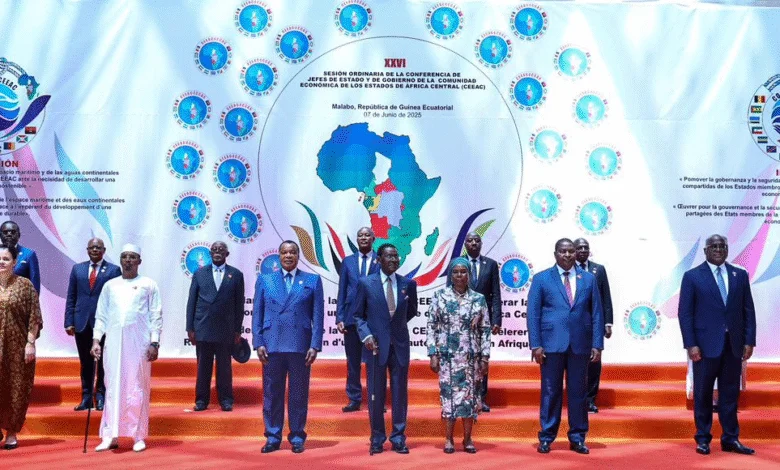
Central African Republic – President Faustin Archange Touadéra participated in the 7th Extraordinary Session of the Conference of Heads of State and Government of the Economic Community of Central African States (ECCAS) on Sunday, September 7, 2025, in Malabo, Equatorial Guinea.
Hosted under the patronage of Equatorial Guinea’s President Teodoro Obiang Nguema Mbasogo, the summit convened leaders from across the region, including Félix Tshisekedi of the Democratic Republic of Congo, Évariste Ndayishimiye of Burundi, and Brice Clotaire Oligui N’Guema of Gabon. Delegations from other ECCAS member states were also in attendance.
The primary focus of the meeting was the renewal of the ECCAS Commission leadership. At the conclusion of the summit, Ambassador Ézéchiel Nibigira of Burundi was appointed as the new President of the Commission for a five-year term, succeeding Gilberto P. Verissimo of Cape Verde. This change is expected to provide new momentum for regional initiatives, particularly in economic integration and development.
In addition to leadership appointments, delegates addressed pressing security challenges in the region, with particular attention to the Democratic Republic of Congo. The summit welcomed ongoing efforts to restore stability in the conflict-affected areas, emphasizing regional collaboration and the role of ECCAS in supporting peacekeeping and conflict resolution initiatives.
President Touadéra, speaking after the summit, reaffirmed his commitment to regional unity and cooperation. His participation underlined the Central African Republic’s continued engagement in shaping the strategic and security agenda of ECCAS.
Following the close of proceedings, President Touadéra and his delegation returned to Bangui in the early evening. The summit’s outcomes signal a renewed focus on both governance within the ECCAS Commission and collaborative responses to security threats across Central Africa, highlighting the region’s determination to strengthen stability and economic progress.
The Malabo meeting marks a significant step in ECCAS’s ongoing efforts to balance institutional leadership renewal with urgent regional security imperatives.



